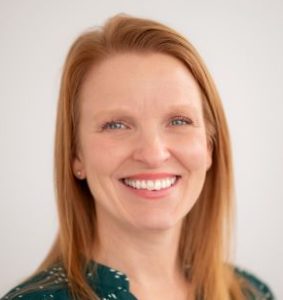
About 16 months ago, on an otherwise quiet Thursday afternoon, a few of us sat glued to our screens here at McKnight’s, expecting that a bombshell COVID vaccine ruling would be coming from the US Supreme Court at any moment.
It was one of those stories I’ll never forget covering, what with the frenzy around such a divisive topic and the need for readers to have a complex situation (that had split decisions in two cases) boiled down into simple language.
At the end of the day, we told you that if you wanted to keep your job in a nursing home, you’d either need to get vaccinated or get yourself an approved exemption.
While no one had been certain which way the court would vote on the mandate for healthcare workers, not much about the process that followed was surprising. The court let the mandate stand; federal regulators plowed ahead with implementation after months of delay; and vaccination rates hit levels needed for herd immunity. Remember that term?
That’s one of the things that made Monday’s announcement that the Biden administration would begin revoking vaccine mandates with the end of the public health emergency so surprising.
No one in the many skilled nursing circles I enter in my daily reporting had predicted this. Maybe they didn’t think it was the right time, or maybe they didn’t have the heart to hope that the Centers for Medicare & Medicaid Services would backtrack. Maybe they just didn’t want to discuss it with me, an avowed advocate for vaccine mandates from the beginning.
In fact, CMS officials had issued numerous recent signs I interpreted to mean the agency was sticking to its guns when it came to the importance of worker vaccinations.
Coming changes to quality reporting metrics promote (but don’t require) staff vaccination against both flu and COVID. Specifically, this year’s prospective payment rule aims to change tracking of staff vaccinated against COVID to tracking of staff who are “up-to-date” in their COVID vaccinations.
If anything, I’d thought CMS might harden its mandate to force healthcare workers to come around on that, especially given that just 22.9% of nursing home staff across the US were up-to-date as of mid-April.
And, yet, this all makes sense if another CMS bombshell is just around the corner.
Providers and state and federal lawmakers concerned about the nursing home staffing mandate have argued that a vaccine mandate is continuing to cut into job candidate pools.
By removing that argument, maybe CMS is seeking to reduce opposition to whatever shape its minimum staffing rule takes. It’s a perplexing thought, given that CMS said publicly, and at two large studies affirmed, that the mandate did not affect staffing — at least not worse than continued quarantines of exposed, non-vaccinated workers would have.
So will this or won’t this open the floodgates?
It will be interesting to see exactly how the mandate will end, as well as which states follow suit and how quickly. I’ll be watching how providers try to woo back the workers they think they were missing out on while the mandate was in effect.
Publicizing that required vaccines are going away has the potential to turn off prospective residents and families. Safety from COVID illnesses will be front and center in their minds, even if we know that outbreaks are leading to fewer hospitalizations and deaths, even among the elderly.
After all, you’ll want to keep your beds and payroll as full as possible. So as the flash-bang of Monday’s announcement starts to fade, be mindful of inflicting self harm with rash vaccination policy decisions — and stay ready for the next shot across the bow.
Kimberly Marselas is senior editor of McKnight’s Long-Term Care News.Opinions expressed in McKnight’s Long-Term Care News are not necessarily those of McKnight’s.




